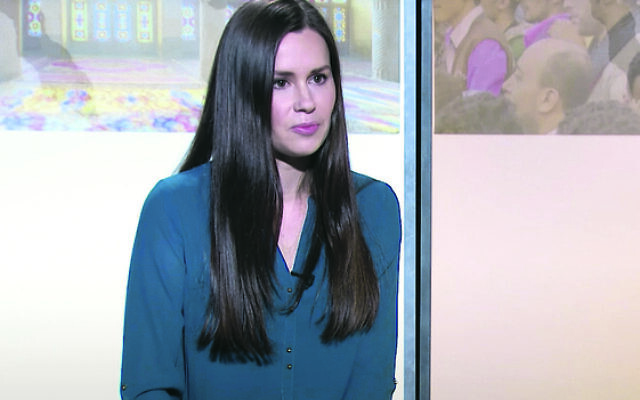Our community must rally to Kylie’s cause
'It is incumbent on us as a community to express our solidarity with Dr Kylie Moore-Gilbert and ramp up international pressure on Iran's government to release her'.
THE desperate situation of Australian-British academic, Dr Kylie Moore-Gilbert, has taken a turn for the worse, with her move to a notorious desert prison east of Tehran.
In August 2018, Dr Kylie Moore-Gilbert, an Australian-British academic attended a one-week course in Qom, Iran. The event, entitled the “7th Intensive Course on Shi’a Islamic Studies”, would have been of great interest to Moore-Gilbert, who in 2017 completed a PhD in Gulf studies, with a passionate interest in Islamic studies and Middle Eastern politics.
Having completed the one-week course, Moore-Gilbert remained in the city of Qom conducting what The Australian newspaper reports as “personal research interviews”.
It is unclear what exactly transpired during these days, but on arriving at Tehran airport and after checking in for her flight home to Australia, she was arrested and charged on suspicion of espionage. Moore-Gilbert was thrown into the notorious Evin prison and in a closed court hearing, without independent legal representation or evidence, she was sentenced to 10 years’ imprisonment.
Initially, Moore-Gilbert’s family and supporters believed that the best chance of securing her release would be through diplomatic channels. Unfortunately, this strategy has failed. In fact, Moore-Gilbert’s situation has significantly deteriorated in the last few weeks, with her move from Evin prison to Qarchak prison, labelled by the US Department of State as being responsible for “gross violations of internationally recognised human rights” and described by the Iran Human Rights Monitor as “one of the most dangerous and worst prisons in Iran due to its inhumane medical and psychological conditions”.
It is believed that Moore-Gilbert has suffered appalling treatment in her two-year ordeal. Reports claim she has been held in solitary confinement, tortured and denied phone calls and visitation rights. At great personal risk, Moore-Gilbert smuggled 10 letters out of Evin prison last year. In a letter dated July 5, 2019, she wrote that she was taking psychiatric medications and that the “10 months that I have spent here have gravely damaged my mental health”. She went on to express her fears that her “mental and emotional state may further deteriorate”.
On August 26, 2019, Moore-Gilbert wrote, “I think I am in the midst of a serious psychological problem, I can no longer stand the pressures of living in this extremely restrictive detention ward anymore.” In a desperate cry for help, she wrote: “In addition to all the pain I have endured here, I feel like I am abandoned and forgotten.” Suicide attempts have been reported in the press, but the family vehemently denies these claims.
Since the establishment of the Islamic Republic in 1979, hostage-taking has been a central pillar of government policy. The grotesque practice of detaining innocent Westerners and charging them on trumped-up charges, has proven a lucrative and successful strategy for the Iranians. The Obama administration paid more than a billion dollars to secure the release of several American hostages. Other administrations, including the Reagan administration, did the same.
Compounding the problem is that whenever Iran takes an innocent hostage, Western diplomats always respond with the same advice: the best chance for resolution is to keep quiet. That was the advice given to the family of Bob Levinson, a Jewish American former FBI agent, whom the Islamic Republic arrested in March 2007. Levinson languished in prison as the State Department repeatedly told his family and supporters they were working on his release. Tragically, earlier this year, after enduring 13 years in prison, his family received word that Levinson had died in captivity.
Whatever the reasons for the targeting of Moore-Gilbert, the injustice in this case should be of great concern to all Australians, and not least to the Australian Jewish community, who understand all too well the Islamic Republic’s cruelty and flagrant disregard for human rights. As Australian journalist Peter Greste told The Australian: “The Iranians need to understand that Australians, particularly Kylie’s friends who know her and know she is not a spy, believe this is a massive injustice.”
It is incumbent on us as a community to express our solidarity with Moore-Gilbert and her family and join the growing chorus who believe the time has come to ramp up international pressure on Iran’s government to release her.
As Moore-Gilbert wrote in a letter to Prime Minister Scott Morrison over a year ago: “I beg you to act faster to bring this terrible trauma that myself and my family must live through day after day to a resolution. Please I beg of you to do whatever it takes to get me out.”
Anna Pasternak is a member of the Sydney Jewish community.


comments